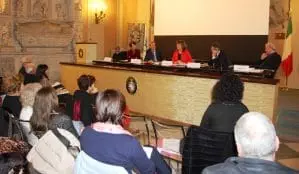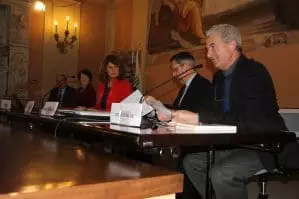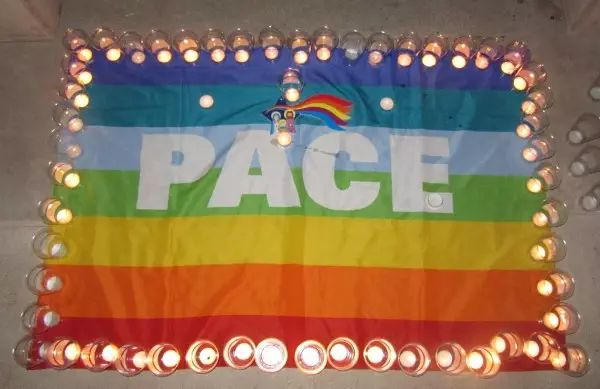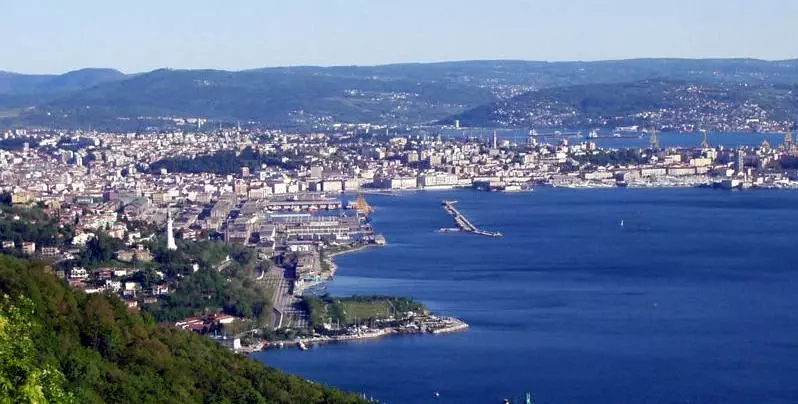
by Silvano Magnelli | Mar 17, 2017 | 2017 | 60th Treaties of Rome, Experiences, reflections and interviews, Italy, News
With the 60th anniversary of the Treaties of Rome approaching, people in European cities gather to give witness to a Europe focused more than ever on dialogue and brotherhood. Trieste is one of them.
60 years ago, the Founding Fathers of Europe took the first steps on a path which would lead to greater European unity against the stench of blood and smoke and the rubble of a war driven by nationalist and racist extremism in Europe and which subsequently spread throughout the world. Only a comprehensive reformation including international, political, civic, economic, cultural and religious relationships between peoples and communities would be capable of paving a new way to help Europeans to emerge from a culture of widespread hatred.
60 years after the historic days which marked the signing of the Treaties of Rome in 1957, we re-affirm European unity as the indispensable means to maintaining peace and peaceful co-existence. Despite the failings, undeniable gaps, rigidities, bureaucratic excesses, misunderstandings and serious inequalities of the European Union, the advantages of the re-composition of Europe largely prevail. We must strive to continue on and to perfect the path we have undertaken, rather than obliterate it, as called for by nationalist and separatist voices, something that would only serve to draw us back into peace-threatening situations.
More than four million young European students have benefited from the Erasmus program in terms of formation and knowledge. Equally significant has been the number of European professionals, who have taken advantage of the freedom afforded by mobility within the EU which has facilitated the acquisition of expertise, as well as increased cultural, technological, commercial and economic exchange. Many young people have put themselves at the service of other European countries to their own, through the European Voluntary Service. A broad scholarly exchange has been made possible thanks to collaborations between universities. Improvements across a range of areas such as occupational and environmental safety, health care, tourism and culture, have been achieved through European directives that are reflected in national legislation. Religious communities have also set in motion processes for unification and integration extending to all Christian Churches and every religion.
We cannot afford to give up such benefits. Instead we must intensify and uphold this model for the sake of all European peoples who have suffered enough. In order to re-affirm this commitment, we will meet on 24th of March at 6pm in St. James’ Oratory (Oratorio di S. Giacomo) in Trieste for an evening of celebration marking this 60th anniversary. Promoting the event are approximately twenty associations, movements and communities, that all form part of a broader initiative called Together for Europe, which for the last 17 years has been active in many European cities, including Trieste. Together for Europe brings together the faithful of different religions, non-believers and people of good will who, rather than conflict seek peace and encounter. This will be an evening of reflection, brotherhood and celebration motivated by our own awareness of the urgent need to rediscover the importance of coming together in solidarity.
For the Coordination team of Together for Europe for Trieste, Italy
Silvano Magnelli
Photo Trieste: Di ryogt www.flickr.com/photos/ryogt/12980775/, CC BY-SA 2.0
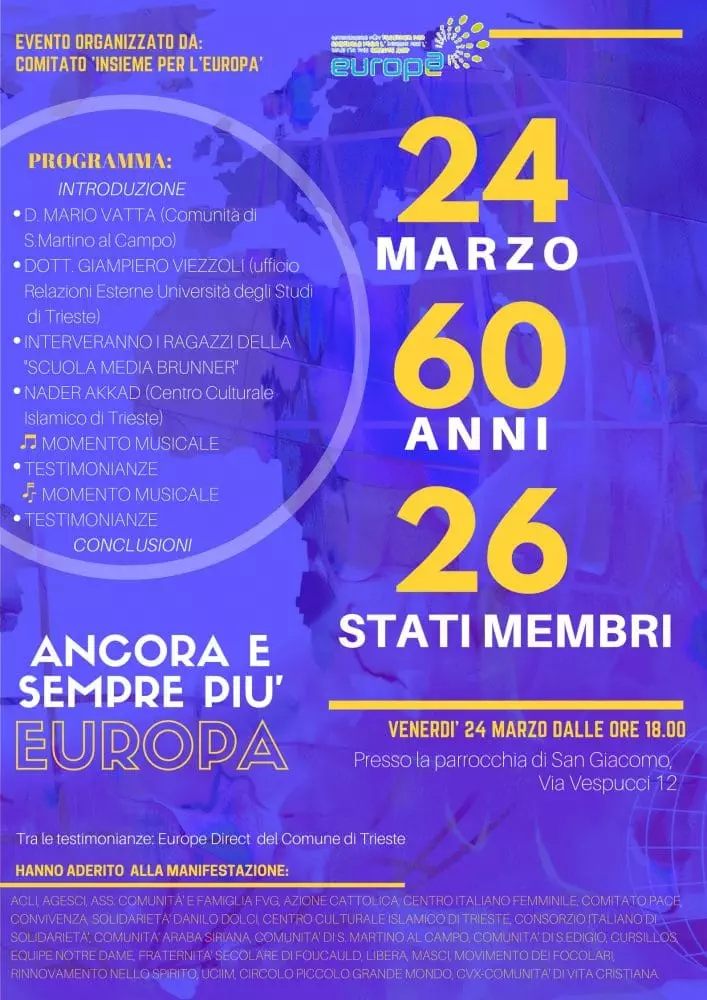
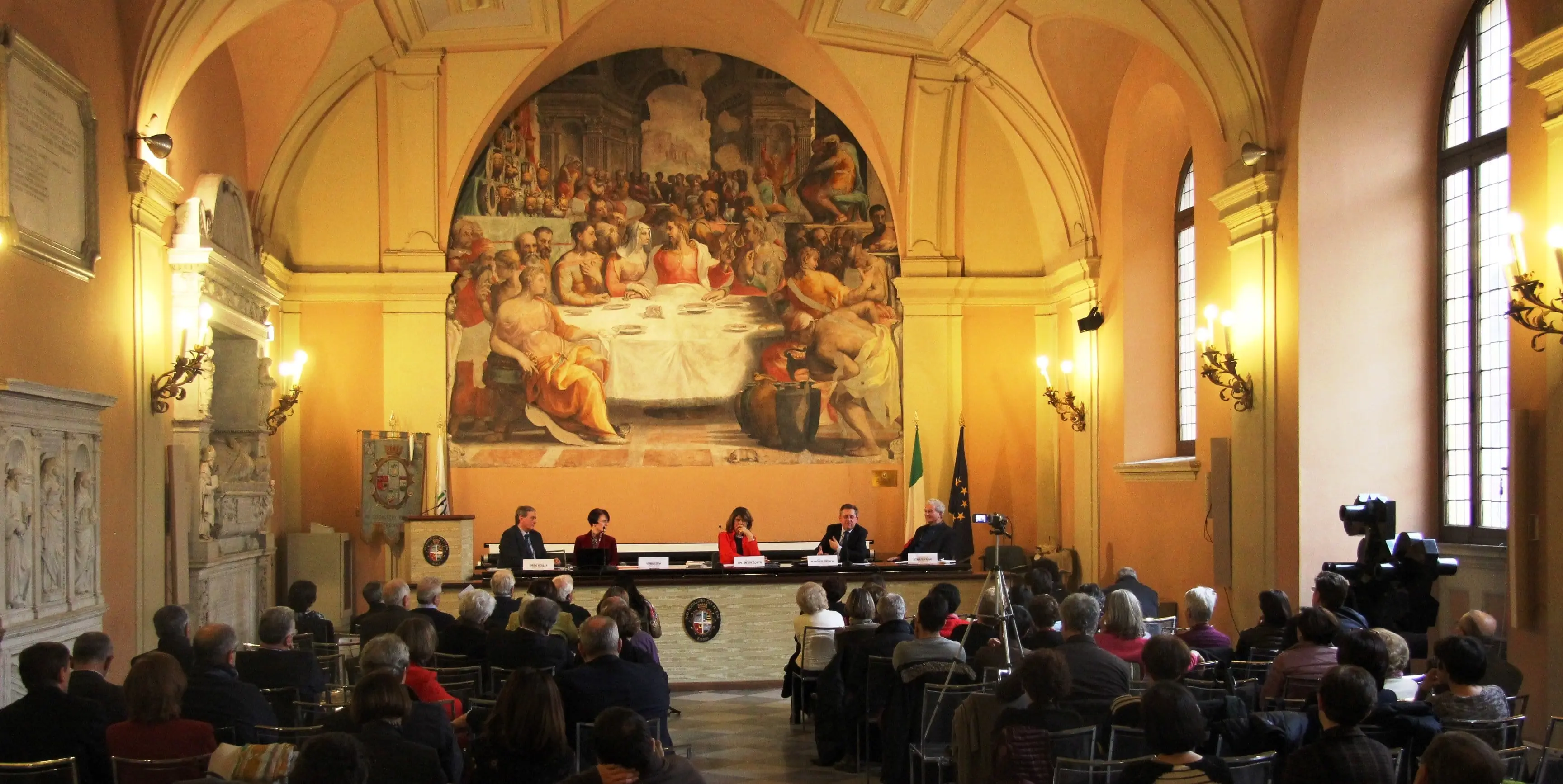
by TogetherforEurope | Mar 8, 2017 | Italy, News
17th February 2017, Chapter House of San Salvatore in Lauro, Rome (Italy): Together for Europe at the Conference of Association “City for Fraternity”
After the welcome by President Milvia Monachesi, a series of reflections on the potential and the challenges of the European continent followed. Among the speakers were Donato Falmi, former Director of the Italian Publishing House New City, Marco Filippeschi, Mayor of Pisa and President of the ‘League for Autonomies’ (Lega per le Autonomie) as well as Ms Silvia Costa, European Parliament MP and Coordinator of the S&D Committee on Culture and Education. Ms Costa concluded her remarks stating that: “Europe is inconceivable without fraternity”.
Under the heading “Europe: Freedom, Equality and… Fraternity? – A Chance for Today”, the experience of the network Together for Europe, presented by Diego Goller (Italy) and Ilona Toth (Hungary) highlighted the action taken by Communities and Movements belonging to various Christian Churches and how, drawing on their rich spiritual and cultural patrimony, they aim to contribute towards greater European unity.
In his contribution, Diego Goller said: “It is often thought that uniting Europe means uniting European cities. This is because it is in the cities that the most pressing issues that require solutions exist. People also say: ‘act locally, think globally’. Perhaps we could rather say that what we need today is to ‘think locally, act globally’. This is because ideas stem from life, on the ground, in suburbs, whilst issues which cause concern in our cities often originate on a global level.“ Speaking in this context about Together for Europe, Mr Goller continued: “Chiara Lubich said from the network’s early stages that ‘TOGETHER’ stands for ‘brotherhood, fraternity’; and ‘Europe’ is a synonym of ‘political’, because Together for Europe works for a political project in the broadest sense of the term.”
“During its 17 years of existence Together for Europe matured an identity, which in the concluding message of the event called “Stuttgart 2007” was expressed through a number of “YES” commitments to certain social realities, aimed at making European cities more welcoming and more open to different cultures”, said Ilona Toth. Ms Toth quoted a French sociologist Prof. Michael Hochschild, who, when asked about hope for the future at the recent Together for Europe event in Munich 2016, said: “The answer lies within the Movements themselves, creative forces of social or even religious character. Their faith, their commitment and most of all their trust are valuable assets for overcoming the crisis of our society because they make us believe in the future. This is the reason why spiritual Movements ought to see themselves more and more as creative cultural forces and act accordingly. In a way, they need to become social Movements”.
Alcide de Gasperi, one of the Founding Fathers of Europe, already in 1952 formulated an invitation to democratic dialogue, which is still valid today: “We need to choose: do we speak, discuss, appeal to reason and to human abilities? Or rather do we resort to force, orders and imposition of one person’s will over others? (…) In the past, the inability to agree, to have a meaningful discussion, to convene in an Assembly and negotiate about peace, often resulted in conflicts and even wars. Is striving for peace, creating peaceful processes and establishing institutions to guarantee peace not preferable?”
Expressing gratitude for the welcome invitation to attend the Conference and to collaborate, Diego Goller said: “Let us work together so that our homes, communities and cities become laboratories of friendship and fraternity, capable of facilitating integration and of opening up to the whole world”.
The Conference concluded with a conferral ceremony of the Chiara Lubich Fraternity Prize. In its 8th edition, this award was conferred to the Municipality of Assisi, a city where, as stated during the conferral of the award, “600 years before the three principles of Modernity (Freedom, Equality and Fraternity) emerged from the French revolution, the word Fraternity was already echoing throughout the works of Francis.“
For more information see: www.cittaperlafraternita.org/europa-e-fraternita-binomio-impegnativo
For video footage from the Conference see: https://youtu.be/edJSuqMdDaI
-

-
Convegno Associazione Città per la Fraternità Roma 2017 02 17
-

-
Convegno Associazione Città per la Fraternità Roma 2017 02 17
-

-
Convegno Associazione Città per la Fraternità Roma 2017 02 17
-

-
Convegno Associazione Città per la Fraternità Roma 2017 02 17
-

-
Convegno Associazione Città per la Fraternità Roma 2017 02 17

by TogetherforEurope | Jan 27, 2017 | 2017 | 60th Treaties of Rome, Experiences, reflections and interviews, Italy, News
“(…) Now I would like to address the young people.
I am well-aware, that for you, work and dignity go hand in hand. I realise that today in our country there is a lack of work opportunities, and where there is work it is often insecure and underpaid. This situation affects all in the work force, and even more so you, young people.
Your generation has received more education than those who have come before you. You have both – great knowledge and great potential, and deserve every opportunity to become full protagonists of life in our society.
Many of you study or work in other European countries. This is often a great opportunity. But it must also be a matter of free choice. If you are obliged to leave Italy for lack of opportunities, this signals, that our country is suffering an unhealthy situation which needs to be remedied. Young people who make this choice are always deserving of respect and support.
When the experience gained abroad cannot be brought back to our homeland, all of society becomes impoverished.
In February 2016 in a university in New York, I met with some students from all over the world. One girl opened her contribution by affirming that she feels she is a European, as well as an Italian citizen. Experiences of young people like her who share values, ideas and culture with others show that Europe is not simply the product of treaties. A continent that for centuries was divided by hostilities, chose the path of peace and joint development.
These young people understand that the choices of our times are best faced together. They comprehend the value of peaceful European integration, all the more when faced with the tragic situation in Aleppo, the thousands of people drowned in the Mediterranean Sea and the many conflicts around the world.
They do not accept the contradiction represented in a Europe that is divided and indolent, over issues such as the question of immigration.
We expect the Union to show tangible gestures of solidarity in the context of the distribution of refugees and a dignified management of repatriation for those who are not granted asylum. (…)”
Sergio Mattarella, President of Italy, address to the nation, 31st December 2016

by Koni Brand | Dec 10, 2013 | Italy
From Germany (Würzburg)
“A very special day in our ‘Together’” – so the leaders of movements and communities of various Churches in Germany summarized the meeting of 7th December 2013 in Würzburg. 120 people involved in Together for Europe gathered to reflect on the past year and on the next steps to take.
Here is what Gerhard Pross, ‘Treffen von Verantwortlichen’, wrote: “The day began with a reflection on a thought from Chiara Lubich in which we are called to ‘Together’.
This was followed by a rich exchange of experiences of collaboration between movements and communities in various cities in Germany, such as the ‘Oasis of Peace and Prayer’, formed in Stuttgart.
The President of the German Bishops’ Conference, Archbishop Robert Zollitsch wished to visit the conference. In ‘Together’, he sees an initiative which unites the Churches, gives an important witness and is a sign of encouragement. He spoke particularly in view of 2017, the year which marks the 500th anniversary of the beginning of the Lutheran Reformation.
He hopes that this anniversary will become an opportunity of encounter and of new understanding. In the ensuing dialogue, several aspects emerged.
The ‘pact of mutual love’ came into relief, with which the network of Together for Europe was born. It is not enough to know one another; a real, fraternal collaboration is needed, which gives an example to the peoples of Europe.
‘For me it was an historic moment, there is someone who opens wide his arms’, said one of the Leaders. And another exhorted Archbishop Zollitsch to continue on this way with courage: ‘The people are on your side!”
During the conference, reference was made to the meeting of the ‘Friends of Together for Europe’ which took place last November in Paris. ‘Together’ welcomes not only movements of various Churches, but also belonging to almost all the peoples of Europe. This gives rise to a responsibility for a cultural, social and political contribution.
Gerhard continues: “With the German Committee we prepared the day of 7th December with a prayer of ‘listening’. When we were able to put aside all our considerations and we tried to listen to Him, then we felt encouraged. Someone said: ‘The Risen Lord is among us and says, ‘don’t be afraid!’’.
This meeting had a special grace and left in our hearts the certainty that ‘Together’ will go ahead and that we have been able to intuit something of the ‘score written in heaven’”.
From Ischia (Italy) 7th September 2013: Procession for Peace.
“On 7th September, 2013 – write Rita and Giulio Seller – on the occasion of the World Day of Prayer for Peace, the ‘Ischia for Europe’ Committee organized a major event for peace with a procession with songs and candles. As a sign of support, shops switched off lights and turned down sound. The march ended in the pine forest with speeches, poems and prayers about peace, contributed by Lutherans and Catholics, interspersed by musical pieces from some of the island’s artists. The Catholic bishop recorded a video message for the occasion.
Many left comments and reflections, expressing gratitude for the event”.
Gabriella Fallacara e Severin Schmid

by TogetherforEurope | Oct 15, 2009 | 2009 Local Events, Austria, Italy, News
Together for Europe multiplied. With the 2004 and 2007 events in Stuttgart, continental in scale, many Christian Movements and Communities all over Europe set on a journey of Together.
In 2009 in order to ‘sow’ locally national meetings were held in 12 European countries: Austria, Belgium, Bulgaria, France, Germany, Northern Ireland, Italy, Russia, Switzerland, Slovak Republic, Slovenia and Hungary. The presence of a representative of another European country at each national meeting helped maintain a broader European dimension.
Each of these events were unique in character and coloured by the culture of the region as well as the Communities and Movements involved in its organisation. A shared objective was to face up with responsibility to challenges facing today’s Europe, beginning within each country’s own borders.
Several of these local events were closely followed in the national media including TV, radio and press of the individual countries. Effective testimonials of Christian life were offered for a variety of life situations: with themes ranging from the welcoming and safeguarding of life to complex issues affecting the family today, the relationship with nature, solidarity with the poor and the vulnerable, commitment to peace and to safety in cities among others.
Testimonials such as these conveyed an assurance that viable solutions to issues faced by the society today could be found in the Gospel.
See the video “10 years for Europe”
by the International Secretariat of Together for Europe




